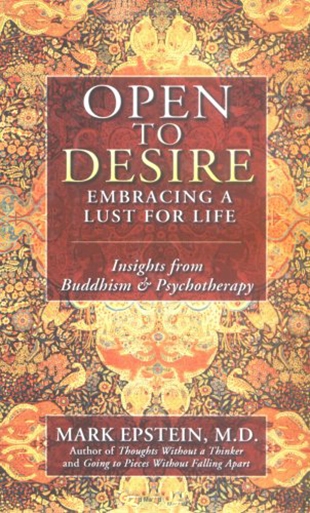Mark Epstein is a psychiatrist in private practice in New York City who serves as a contributing editor to Tricycle: The Buddhist Review. He is the author of three books growing out of his exploration of the confluence of Buddhism and psychology: Thoughts Without a Thinker, Going to Pieces Without Falling Apart, and Going On Being. In this erudite and engaging volume, Epstein corrects the dominant misperception that Buddhism strives to eliminate desire. In the West, those involved in intimate relationships are troubled when this essential human quality is downplayed and forced to play second-fiddle to the Buddhist practices of renunciation, detachment, and having no preferences. Instead, the author makes a case for desire as a vehicle for personal transformation. This is known in the East as the tantric or left-handed path. Rather than treating desire as the cause of suffering, it is embraced "as a valuable and precious resource, an emotion that, if harnessed correctly, can awaken and liberate the mind."
This sturdy book is divided into four sections: For Want of Desire, Clinging, The End of Clinging, and A Path for Desire. Epstein gracefully melds Hindu myths, Buddhist teachings, psychoanalytic theory, and contemporary case histories. He notes: "While desire yearns for completion, and seeks it most commonly in love, it can find the freedom it is looking for only by not clinging." He salutes the "sex-friendly" nature of Tibetan Buddhism and says this about the copulating figures adorning Tibetan art: "In this tradition, the active male desire, chastened by the gap that desire creates, becomes empathy and compassion: the ability to reach into the experience of another and feel what they are feeling. The desire to possess or control becomes the ability to relate. The beholding desire, represented by the female partner, is a metaphor for wisdom, as exemplified by the capacity to be. This formulation has always impressed me because it reverses the conditioned way of thinking. Compassion is male and wisdom female." By reframing desire in this innovative way, Epstein opens up new possibilities for intimate relationships.
